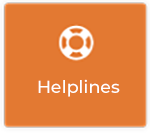UP2US – Lesson 7: Rewriting the rules

This lesson will encourage students to analyse and refine the school’s bullying policy, AUP and
internet-safety guidelines by applying knowledge generated in Lesson 6.
- +Curriculum Links
- Junior Cycle SPHE Short Course Strand 3:
Anti-bullying: Discuss the school’s anti-bullying policy and internet-safety guidelines in terms of their implications for their own behaviour and personal safety; develop guidelines for promoting an inclusive environment. - +Resources and Methodologies
- Resources:Copies of the school’s bullying policy, AUP and internet-safety guidelines, posters produced in Activity 6.2, Copies of Worksheet 7.1
- Methodologies: Presentation, Brainstorm, Text analysis in pairs, Group work for devising rules
- +Learning Outcomes
- Learning outcomes:
- Students will have presented their artwork and survey findings on the positive and negative aspects of the internet.
- Students will have analysed and refined their school’s bullying policy, AUP and internet-safety guidelines.
- Students will have applied the knowledge and insights gained in Lesson 6 to improve the school’s policies.
- +Key Skills
- Staying well, Communicating, Being creative, Working with others, Managing information and thinking, Literacy, Numeracy
- +Activity 7.1 - Our internet, by pictures and numbers (10 minutes)
- STEP 1: Students should present the ideas expressed in the artwork and findings of the survey to the whole class. All key findings and messages should be noted by the students for use in the second half of the class. All artwork should then be stuck up in the classroom so that students can access and review the messages at later dates.
- +Activity 7.2 - Examining the policies (20 minutes)
- STEP 1: Students should be split into groups, and each group should be given a copy of Worksheet 7.1 Rewriting the rules – Checklist and a copy of either the bullying policy, the AUP or the internet safety guidelines to read and analyse. If the policies are particularly long each group might be given just a section of the policy to analyse.
- STEP 2: Students should discuss the policies in their groups and should amend them where they feel necessary. Worksheet 7.1 should help highlight areas that might need to be revised. Students should try to refer to the details provided in the artwork and survey when suggesting changes.
- STEP 3: After working together, each group should provide feedback to the whole class with its recommendations for changes to policies. Summary of feedback should be taken on the board.
- STEP 4: At the end of the activity students should agree on the policy changes they feel should be suggested to school management and students’ council.






